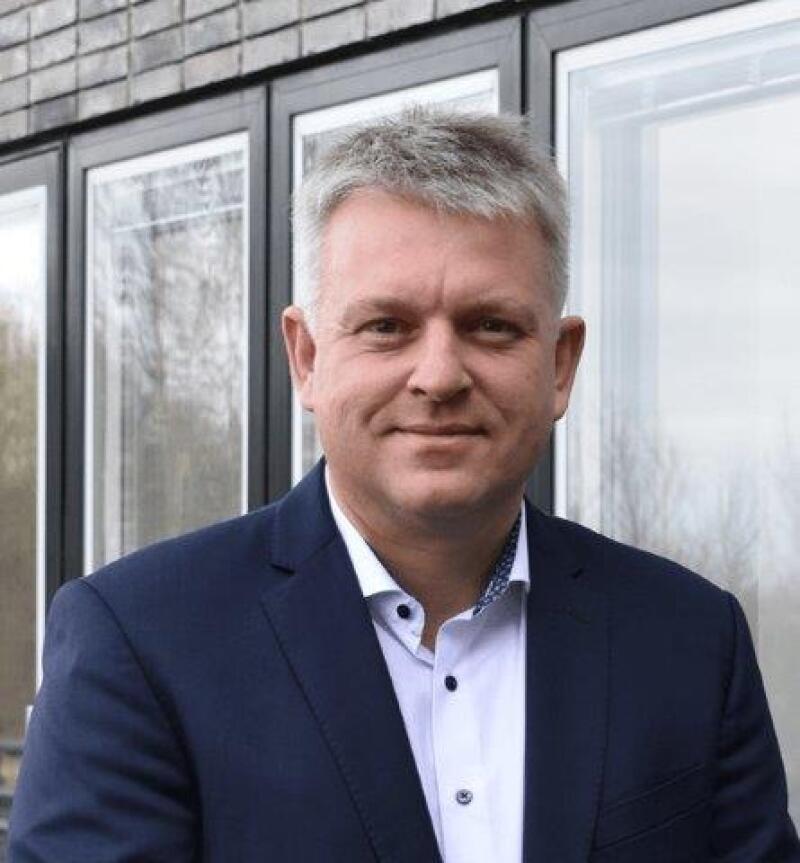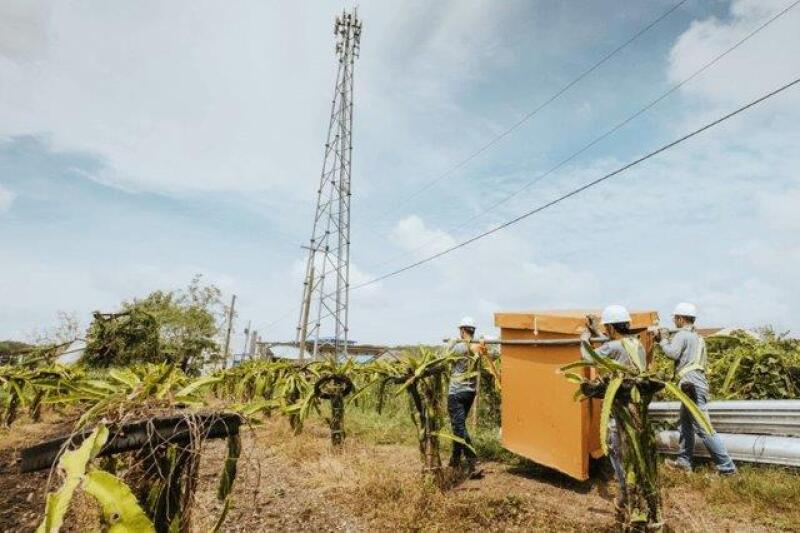Last year at Meetup Asia, Advent Technologies hosted a roundtable discussion focusing on the roadmap to renewables, and how tower owners could manage the transition from diesel generators to cleaner power solutions. During the conversation, Advent's innovative fuel cell solution was discussed at length, and participants agreed on their usefulness to help with their sustainability goals.
With this in mind, we caught up with Business Development Director, Kim Abildgaard, to talk about what he learnt at the roundtable, and share some of Advent's capabilities.
TowerXchange: SerEnergy recently teamed up with Advent Technologies – can you tell us about the advantages this brings and the opportunities it brings for the telecom industry?
Kim Abildgaard, Business Development Director, Advent Technology:
At Advent, we believe that the world can decarbonise faster and reduce harmful emissions, but to accelerate the pace of electrification, we will need hydrogen and renewable fuels. These fuels will enable true zero-emission (well to wheel) carbon-neutral power for the heat & power generation markets, which will not just include telecoms, but the automotive sector, aviation, portable devices, and marine applications.
As Advent, we have extended our global presence with sales, service, and development teams in the US, Greece, Germany, India, and Denmark. We are getting closer to our core markets and key customers.
Advent is a fuel cell technology leader holding 150+ patents that will ensure a constant focus on product improvements and scaling the manufacturing facilities.

TowerXchange: What telecom energy challenges can fuel cells help solve?
Kim Abildgaard, Business Development Director, Advent Technology:
The industry has already invested heavily in adding renewable energy solutions, including solar and wind farms, into the hybrid energy supply equation. This drive has come from corporate strategies and shareholder requirements for firms to run a sustainable and environmentally friendly business.
Consumers have sent a clear message that they want corporations to take social responsibility and enforce global and national regulations. It is no longer a question of if fossil energy solutions are replaced, only a question of when. And those who have initiated their green transitions will gain a competitive edge.
We can design and build fuel cell solutions that meet all the applications and energy needs we know of today. However, change does not happen overnight; it takes time, and we should focus on the use cases where value and effort pay off.
It is equivalent to the electric vehicle transformation, from combustion engines to plug-in hybrids to 100% electric vehicles. It was important to follow this roadmap in EV transformation before innovators jumped into creating electric ships and trucks.
Today, the telco sites running on fuel cells are typically sites that are subject to special conditions and restrictions, or sites powered by hybrid solutions combining solar and wind into a clean power island.
At some cell site local governments have enforced strict particle emissions restrictions and that has led to a ban on diesel generators in some locations. Here, fuel cell solutions are a perfect alternative that can ensure power and network availability. They also have excellent application on sites where noise or vibrations are causing trouble for the local community and infrastructure.
TowerXchange: What should tower owners consider when installing and deploying fuel cells?
Kim Abildgaard, Business Development Director, Advent Technology:
Advent fuel cells are designed with a modular and scalable architecture. This enables us to offer custom solutions that meet our customers’ specific and individual requirements for the optimal solution.
The modularity also enables the system to be scaled as demand on it changes by adding or removing capacity units and supporting a “pay as you grow” model.
The modularity makes it possible to design high-reliability energy solutions by adding units for redundancy. This way, we can meet the high reliability and availability expected as standard in the telecom sector. Furthermore, the modularity also enables us to create compact and small footprint installations with lower weight than is possible with a comparable diesel generator.
Modularity also eases the installation and transport to critical sites in more complex sites, such as remote locations, IBS and rooftop sites. We have installed fuel cells in remote locations that were not accessible by truck or cranes, where the installations were transported on bamboo rafts in smaller parts.

TowerXchange: A big theme at TowerXchange Meetup Asia this year was meeting 5G energy requirements. Why was this so important to the attendees in your opinion?
Kim Abildgaard, Business Development Director, Advent Technology:
With 5G, the cellular communication network will increase its importance as critical government and public infrastructure. The cost and impact of a network and communication failure will no longer be accepted by the public or governments.
The growing use of IoT applications and services in our society increases the need for humans and machines to always be online. A lack of service significantly impacts our ability to deliver services, manage and monitor infrastructure, navigate, and live. A blackout costs billions in lost revenue and performance.
TowerXchange: What drives your customers to consider and invest in fuel cell solutions?
Kim Abildgaard, Business Development Director, Advent Technology:
Overall, our customers are responding to the green and sustainable agenda, and they consider their investments in fuel cells both a competitive advantage and a condition for running their business.
COP-26 in Glasgow this year emphasised the need to make a drastic and immediate change in decarbonisation to protect the world. Ambitious emission regulations are enforced by national authorities, and we see corporations announcing even more ambitious goals.
Green transitions are also being pushed by local communities banning the use of diesel engines in some areas. And this drives the industry to seek alternatives to diesel generators. A fuel cell solution presents a mature and proven alternative that complies with noise, vibration, and emission regulations.
TowerXchange: In your roundtable discussion, we learnt that MNOs in the Philippines have embraced fuel cell technology recently. Can you tell us a little more about this?
Kim Abildgaard, Business Development Director, Advent Technology:
In recent years, telcos in the Philippines have embraced fuel cell technology as a sustainable and proven approach to meeting the national policies on clean energy and social responsibility. The environmental stewardship of the Philippines is governed by its Environmental Sustainability Policy that is periodically reviewed to comply with global and national environmental best practices.
It includes, among other things, the decarbonisation of operations and enhancement of clean energy procurement, pushing strategic partnerships for the implementation of renewable clean energy solutions like fuel cells.
Alfredo S. Panlilio, Smart Communications President and CEO and PLDT Chief Revenue Officer has commented in the past that “PLDT and Smart are active advocates of sustainable development. As we face daunting challenges on how to protect our environment and promote more equitable social development, Smart’s cutting-edge technologies can play a significant role in rallying the right socio-environmental mindset and driving a greater sense of responsibility to the planet.”
MNOs in the Philippines. are driven by regulations and their own 2050 net zero goals, but there is an acknowledgment that this carbon reduction will occur in small steps. Their ambitions, goals, and plans are reflections of their respective commitments to the RacetoZero Campaign and GSMA standards.
They also seek to support the United Nation Sustainable Developments Goals – specifically no. 12 for sustainable consumption and production and no. 13 to combat climate change.
Today, Advent has delivered and installed over four hundred fuel cell units in the Philippines on critical telecom sites. These include rooftops, ground sites, hybrid constellations with solar energy, and in remote areas where harmful emissions, noise, vibrations, and logistics have been barriers for establishing clean energy to telecom sites.

SMART is one of Advent’s customers in the Philippines and recently announced their application of fuel cell technology to the greening of sites in the area: SMART to power cell sites with green energy through fuel cell technology.
To find out more about Advent and the fuel cell system it offers telcos, visit the company’s website here.

